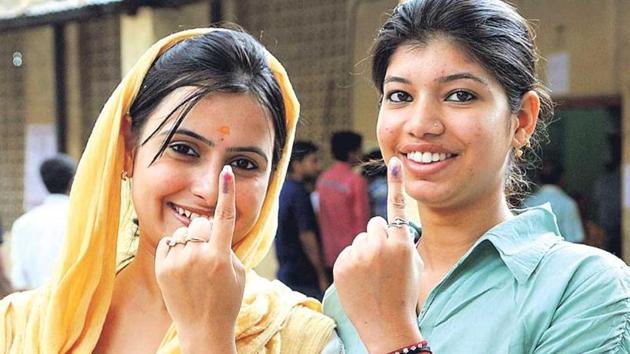Simultaneous elections cannot happen without political consensus
Detailed political consultations are needed to determine what would need to be done if, thereafter, any assembly loses a confidence vote. Would there be a spell of President’s rule in the concerned state?
On February 28, at a meeting of its chief ministers and deputy CMs from 19 states in Delhi, the BJP discussed simultaneous elections from panchayat to Parliament. Holding simultaneous elections is a feasible proposition, but important conditions have to be met before one can go ahead with the plan. The most important prerequisite is political consultation before amending the Constitution and statutes.

The first four general elections (1951-52, 1954, 1962 and 1967) were held simultaneously with assemblies. This pattern was disturbed in 1968-69. Thereafter premature elections to Lok Sabha and assemblies were conducted each time the government lost the confidence of the House.
Since then, the conduct of elections has become increasingly complex. With our continental size and now almost 900 million voters, more than North and South America, this is without doubt the world’s largest management exercise. Most of us are not aware of the complexities involved in its micro management: from EVMs and now VVPATs, to the enormous deployment of central forces (Central Reserve Police Force, Central Industrial Security Force and the Border Security Force).
Over the years, political players have lost faith in the state constabulary for election deployment. They view them as supportive of the government in power. The requisitioning of such large central forces and their deployment is a mammoth exercise. In addition, the Election Commission of India (ECI) needs almost 2000 general and expenditure observers for a general election and a proportionately smaller number for state elections. These are senior officers of the rank of joint secretary and above who are deputed for almost a month at a time to safeguard the Model Code of Conduct and ensure a level playing field.
There is no doubt that clubbing elections will save on expenditure not just for the State but also political parties and their candidates. A prolonged period when the Model Code of Conduct is operational would be reduced to once or twice during a five-year period.
There are, however, critical constitutional provisions that will require amendment.
The Constitution prescribes five-year terms for the Lok Sabha and assemblies (six in the case of Jammu and Kashmir). Any change in this cycle will necessitate amendment of several related articles of the Constitution. If a new pattern of simultaneous polls is sought to be introduced, the existing terms of some Houses will need to be extended or shortened as a one-time measure.
Detailed political consultations are needed to determine what would need to be done if, thereafter, any assembly loses a confidence vote. Would there be a spell of President’s rule in the state concerned ? More importantly, who will administer the Centre in the case of an early dissolution of the Lok Sabha? There is no provision in the Constitution for any interim measure if Parliament is dissolved before its five-year term. If the government falls within a short period (say, in 13 days, as it once happened) it would necessitate an immediate re-election, unless a new provision is enacted to take care of the interregnum.
There are other questions too: In case a government falls mid way through its term, can a ‘no-confidence’ motion be followed by a ‘confidence’ motion in order to install a new government for the remainder of its term? At present, there are no provisions for a ‘confidence’ motion.
Some of these questions have been addressed in the Report of the Parliamentary Standing Committee under EM Natchiappan in 2015. A solution that the committee offered was that elections could be held in two distinct phases. A clutch of assembly elections could coincide with elections to the Lok Sabha. The remaining could be held after two-and-a half years. Each of these proposals will need to be discussed by the political parties.
The ECI may best be viewed as an impartial umpire. The players are the recognised political parties, both central and state, and the members of Parliament and assemblies. The government must seek their views and obtain consensus as was obtained for the creation of the Model Code of Conduct in the 1960s by the political parties.
Navin B Chawla is former Chief Election Commissioner of India
The views expressed are personal





